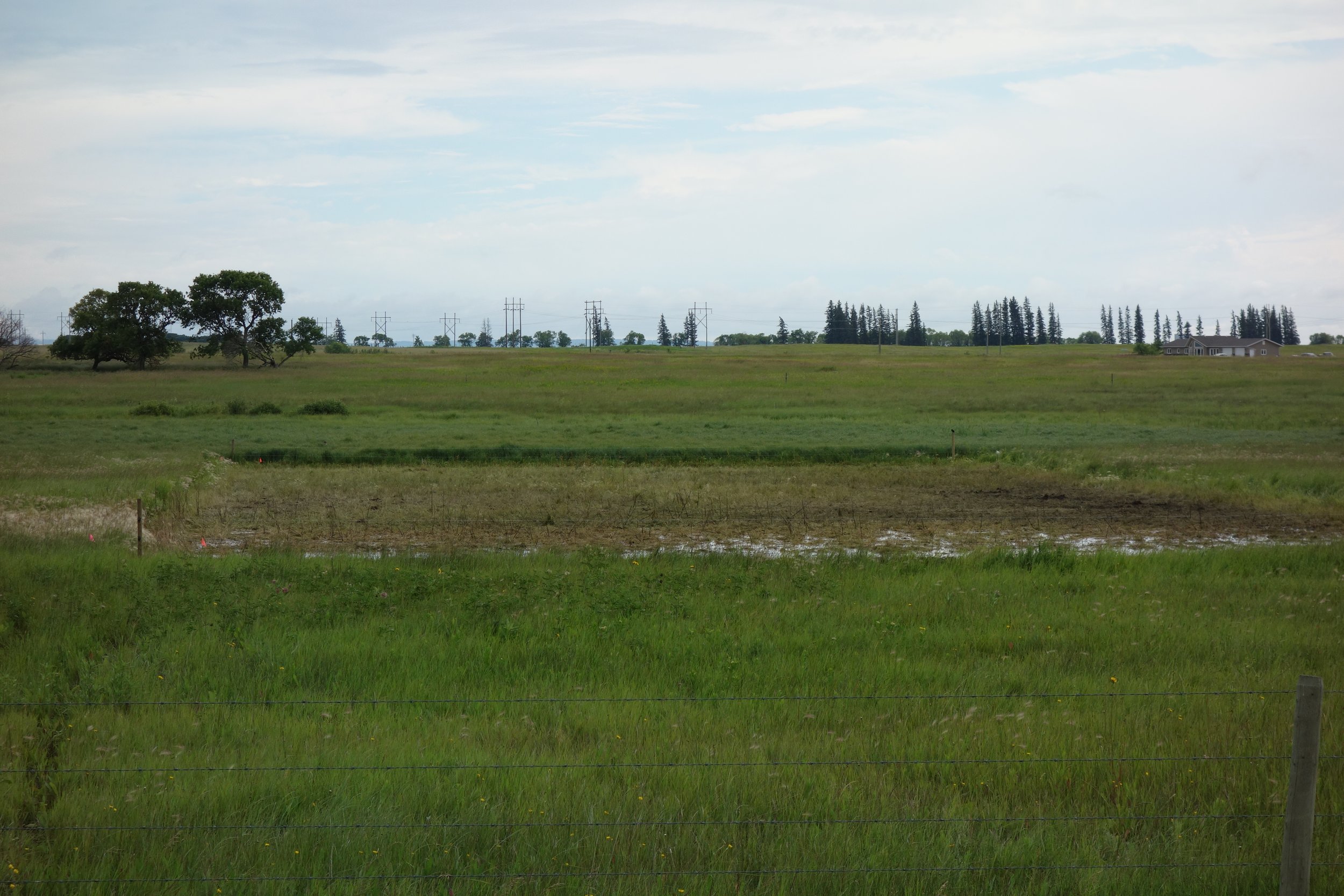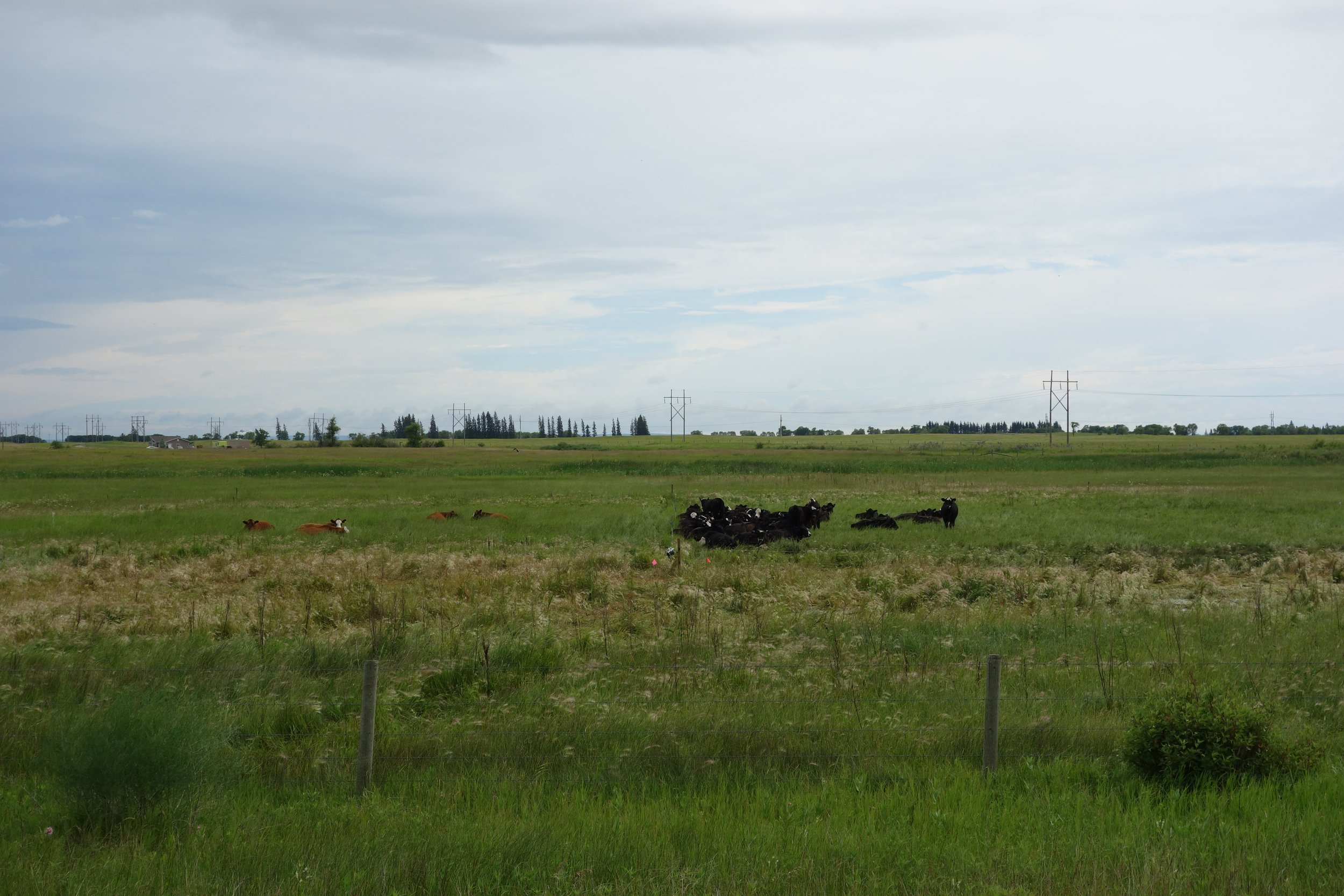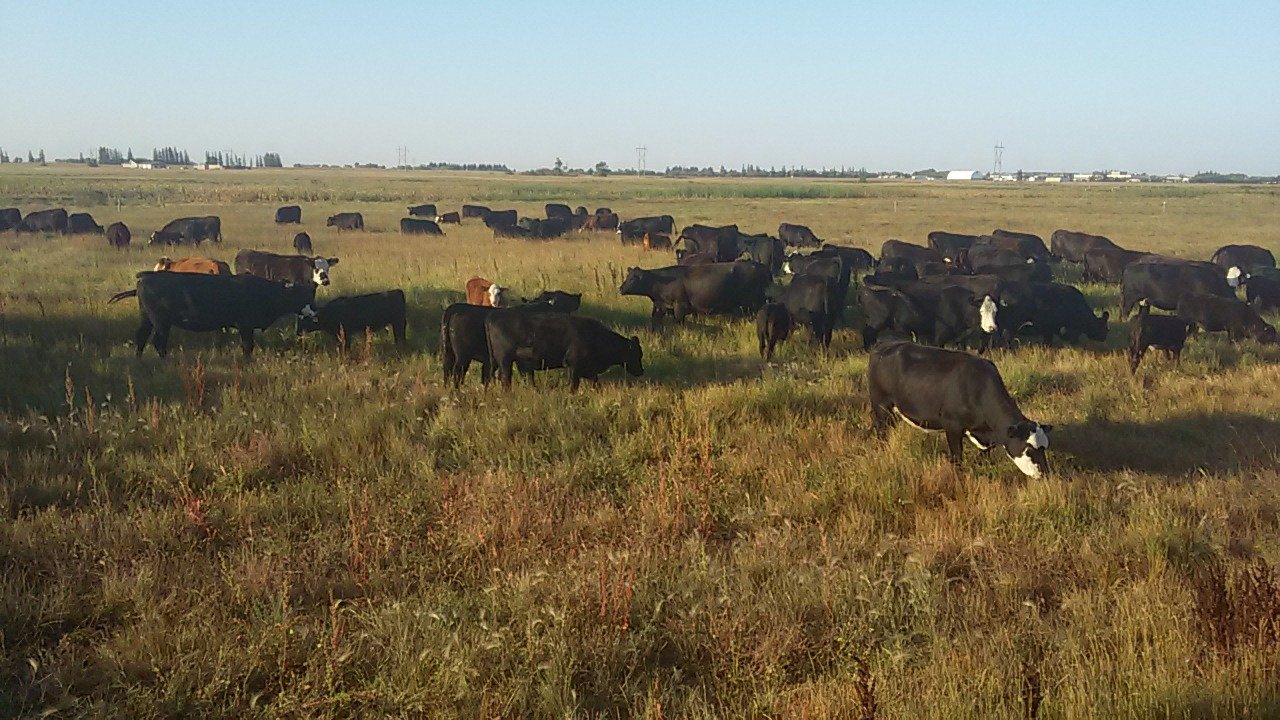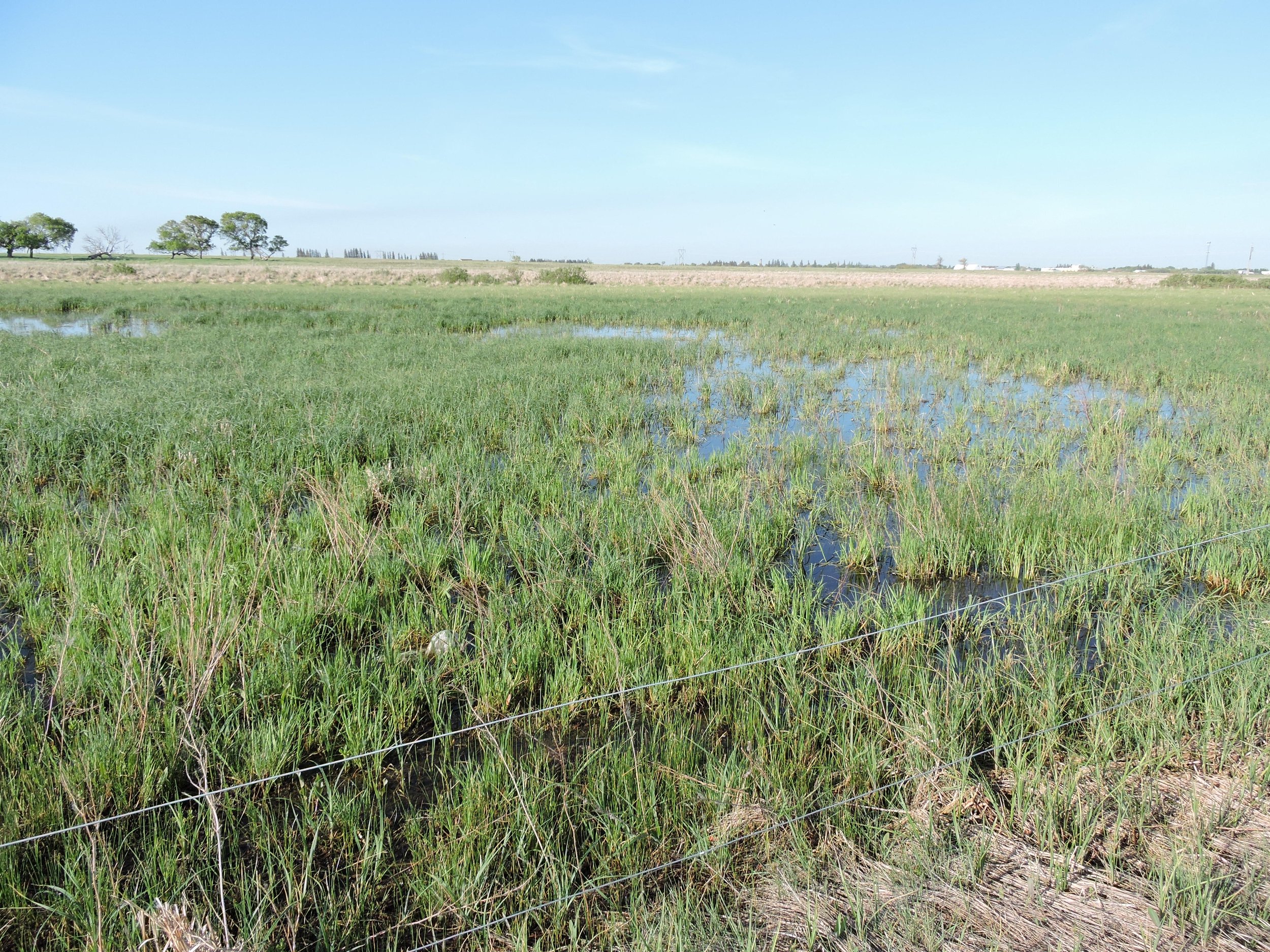Back to Research & Demonstration
Impacts of cattle grazing on the proliferation of foxtail barley and the function of wet meadow rangelands in Manitoba
Project Details
Project Lead: Rafael Otfinowski, University of Winnipeg
Collaborators: Jane Thornton (Manitoba Agriculture - retired), Kim Wolfe (Manitoba Agriculture)
Years: 2016 - present
Project Status: Ongoing
Funding & In-Kind Support: Canadian Agricultural Partnership, MITACS, University of Winnipeg
Location: First Street Pasture
Scope: Research
Keywords: Grazing Management, Perennial Forages, Soil Health, Habitat Biodiversity, Soil Carbon, Climate Resilience
Approach
Wet meadows constitute a large portion of Manitoba's rangelands. Through the diversity of plants they support, wet meadows provide important ecosystem services.
Despite the extent of wet meadow rangelands in Manitoba, little is known about the response of these plant communities to cattle grazing. Of special concern is the potential impact of grazing on the proliferation of foxtail barley, a weedy, salt-tolerant grass, that is considered noxious in Manitoba. Once established, foxtail barley reduces rangeland productivity and poses a threat to grazing animals.
This research examines the response of wet meadow plant communities to the intensity and timing of cattle grazing, including the proliferation of foxtail barley. Measurements of the diversity, structure, and composition of above-ground plants are supplemented with measurements of the architecture and morphology of roots of dominant species. Measurements of soil include compaction, moisture, and salinity.
By evaluating the impacts of cattle grazing on wet meadow plant communities this project will help the sustainable use of wetland meadows in Manitoba, reduce the proliferation of foxtail barley, and help understand links between roots and ecosystem services provided by wet meadow rangelands.
Key Findings
Our results demonstrate that early season, intense grazing of wet meadow rangelands by cattle increased the proliferation of foxtail barley and reduced the richness and diversity of rangeland communities.
In contrast, late season and moderate grazing had few negative effects on the structure and composition of wet meadow rangelands, and maintained their diversity and soil properties, including reduced soil compaction.
Moderate intensities of grazing are important to prevent the proliferation of foxtail barley and to sustain the productivity and healthy condition of soils in wet meadow rangelands.
More Information:
Otfinowski, R., & Coffey, V. (2022). Grazing Effects on the Composition, Diversity, and Function of Wet Meadow Grasslands in Manitoba, Canada. Rangeland Ecology & Management, 80, 78-86. DOI: https://doi.org/10.1016/j.rama.2021.10.002
Otfinowski R, Coffey V, Nykvist R. (2023). Dominant plants mediate effects of grazing on soil nematode traits in a wet meadow grassland. Applied Soil Ecology (In print).
Effects of grazing on the structure and function of soil nematodes in a wet meadow rangeland
Related Projects at MBFI:
Industry Resources:
Rangeland & Riparian Health - BCRC
Riparian Grazing Management - Rangelands Gateway




